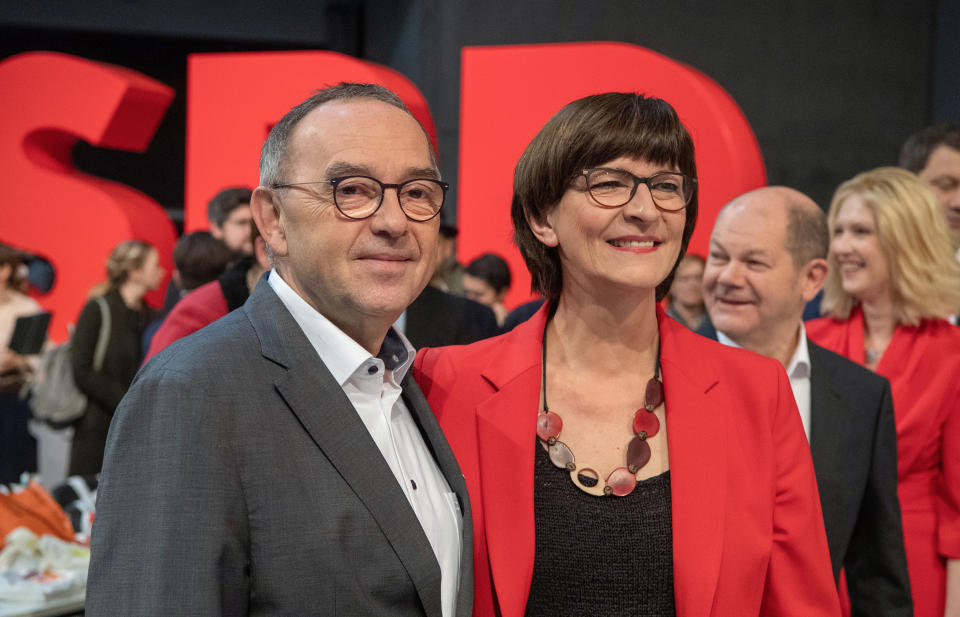Germany’s Social Democrats meet amid calls to quit Merkel’s government

Germany’s Social Democrats (SPD) gathered in Berlin on Friday for their three-day party conference, where they will vote in their new leadership duo Norbert Walter-Borjans and Saskia Esken.
Half way through their four-year term as junior partners in the coalition government in Berlin, the big question hanging over the conference is whether or not the SPD should continue in government with Angela Merkel’s Christian Democratic Union (CDU).
Despite being on the verge of collapse several times over the past two years, the uneasy CDU-SPD coalition government has limped on to this point, but at a cost to both parties, who have both suffered big losses in state elections this year.
The SPD, Germany’s oldest party, has watched its popularity sliding from a 40% high in the 1998 general elections to around 15% support today—behind the Greens and the far-right Alternative for Germany. Many members blame their association with the Conservatives for the plunge in the polls.
The party got a shot of energy with the selection of the two new chairs from the left wing of the party at the end of November. Before the leadership vote, Eskens and Walter-Borjans were outspoken in their demands that the party needed to quit the government and return to its more left-wing roots. However, they have since hesitated, toning down the rhetoric about breaking up the government, with Walter-Borjans noting that “an exit from the grand coalition is not an end goal in itself.“
It is far from a given that the SPD members will vote to suddenly give up their power in Berlin. They do however have a number of demands that they want to negotiate within the current coalition agreement. These include raising the minimum wage, boosting Germany’s climate-protection package, and loosening the purse strings to pump major money into infrastructure and welfare.
Germans are in no rush to see the government split, however. An Infratest Dimap survey for public broadcaster ARD this week found that the majority of Germans polled thought the coalition government should keep going. Notably, 70% also said they did not believe the new SPD leadership duo will be able to turn the party’s fortunes around.
The CDU has demanded that their junior partners honour the coalition agreement as it stands. Merkel’s spokesman said last week that a “renegotiation of the coalition agreement is not on the cards.”
CDU chairwoman Annegret Kramp-Karrenbauer threw down the gauntlet as well, saying that either the coalition contract remains unchanged or the SPD can leave the government.
Should the SPD exit the coalition, the CDU could either carry on in a minority government until the 2021 general election, or a snap election could be called.

 Yahoo Finance
Yahoo Finance 